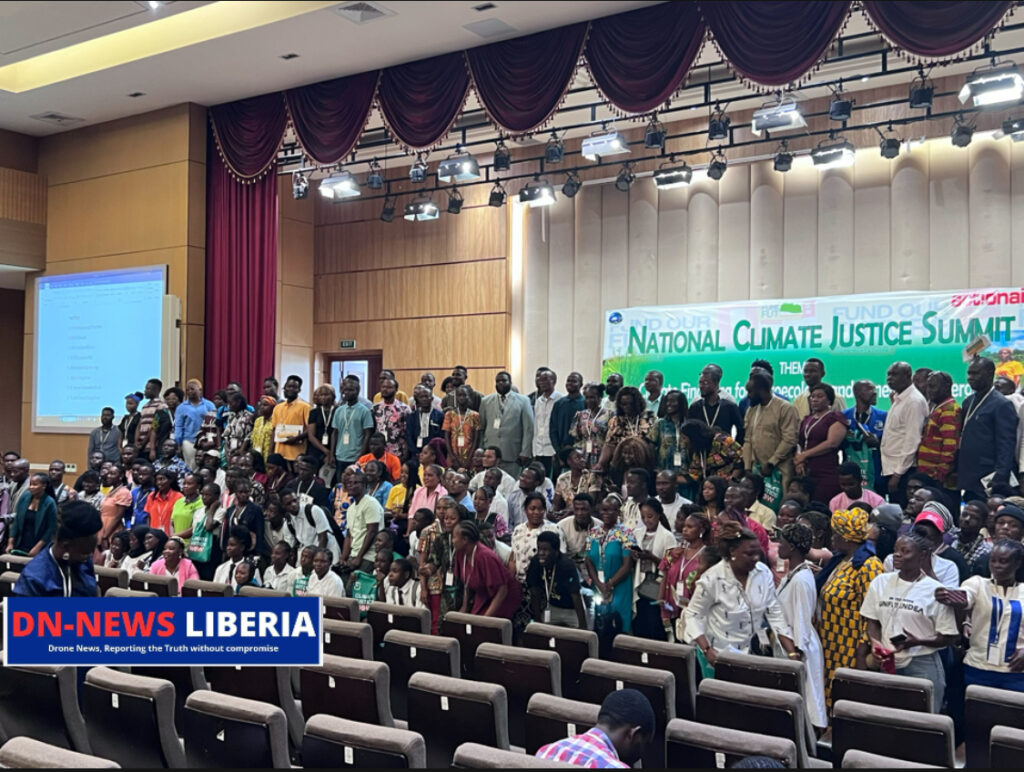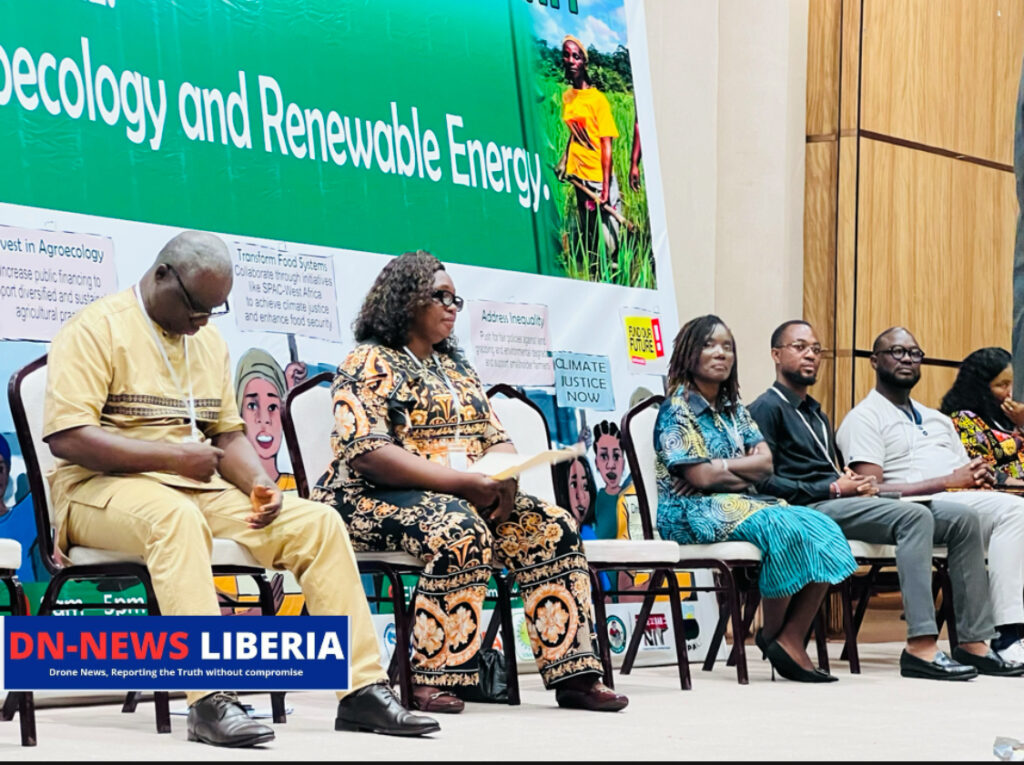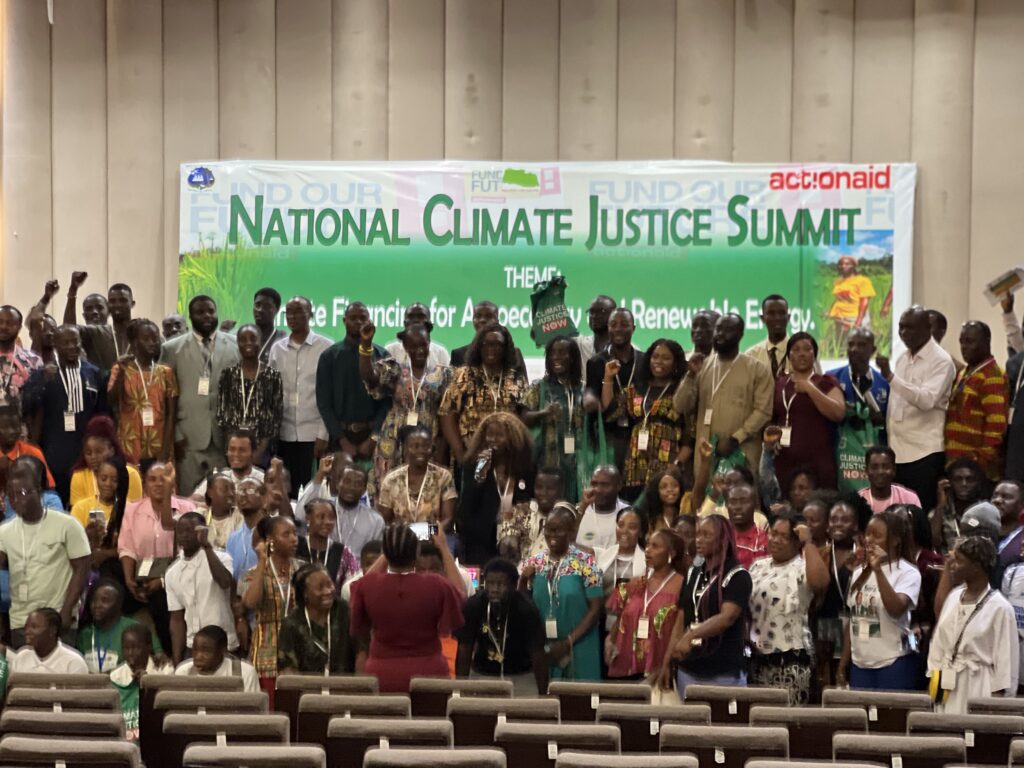Monrovia, Liberia — October 30, 2024 — A three-day “National Climate Justice Summit” aimed at addressing critical challenges in sustainable agriculture and renewable energy has commenced in Monrovia.
The summit, held under the theme “Climate Financing for Agroecology and Renewable Energy,” is hosted by ActionAid Liberia alongside scores of civil society organizations.
From October 30 to November 1, 2024, the summit will bring together agriculture and energy stakeholders, smallholder women and youth farmers, community leaders, policymakers, traditional leaders, and international partners to actively engage in dialogue and advocacy for a just climate for all.

According to organizers, key themes of the summit include access to information, agroecology awareness, the CAADP Biennial Review process with a focus on increasing women’s and young people’s participation, and Liberia’s Energy Transition policy.
The discussions will identify gaps, propose solutions, and seek to secure commitments from stakeholders.
Speaking during the opening ceremony, ActionAid Liberia Country Representative Elizabeth Gbah Johnson underscored the need to tackle climate injustice in all its forms through a combined government-led effort.
“A combined government-led effort is needed to ensure policies are inclusive and backed by adequate financial resources, particularly for youth, women, and smallholder farmers,” she stated.
“In this journey, we aim not only to address social inequities but also to tackle climate injustice in all its forms; we know that climate action must reach those who are most affected—women, smallholder farmers, youth, and communities in poverty,” she added.
Madam Gbah Johnson highlighted ActionAid Liberia’s longstanding commitment since 1997 to supporting vulnerable communities, including women, youth, and marginalized groups disproportionately affected by climate impacts and socio-economic inequalities.
“Agriculture, a vital sector in Liberia’s economy, contributes 36% to the nation’s GDP and provides significant employment, especially for young people. However, climate change has increasingly threatened this sector, with unpredictable rainfall, rising temperatures, and extreme weather events undermining agricultural productivity and food security,” she noted.
The ActionAid Country Representative also pointed out that renewable energy access remains a challenge.
“With only 28% of Liberia’s population currently accessing electricity—and renewable sources representing a minor portion—expanding renewable energy access remains a critical challenge.”

The ceremony was also graced by government and private sector institutions, including the Environmental Protection Agency, the Ministry of Finance and Development Planning, Liberia Land Platform, ECOWAS Non-State Actors, Natural Resource Women Platform, Swedish Embassy, Monrovia City Corporation, Paynesville City Corporation, University of Liberia, and the National Disaster Management Agency, among others, with each making statements of support toward achieving “Climate Financing for Agroecology and Renewable Energy.”


